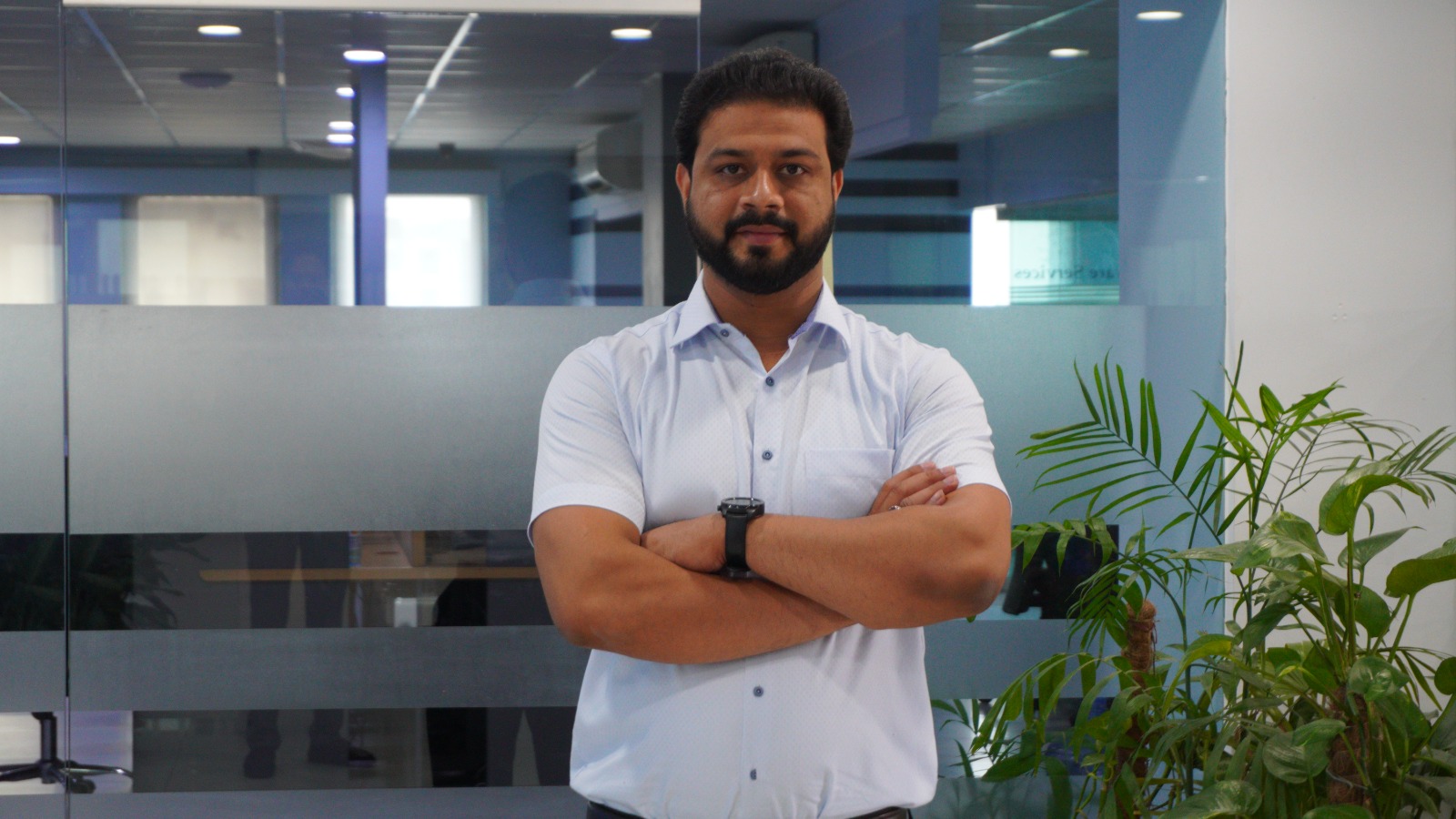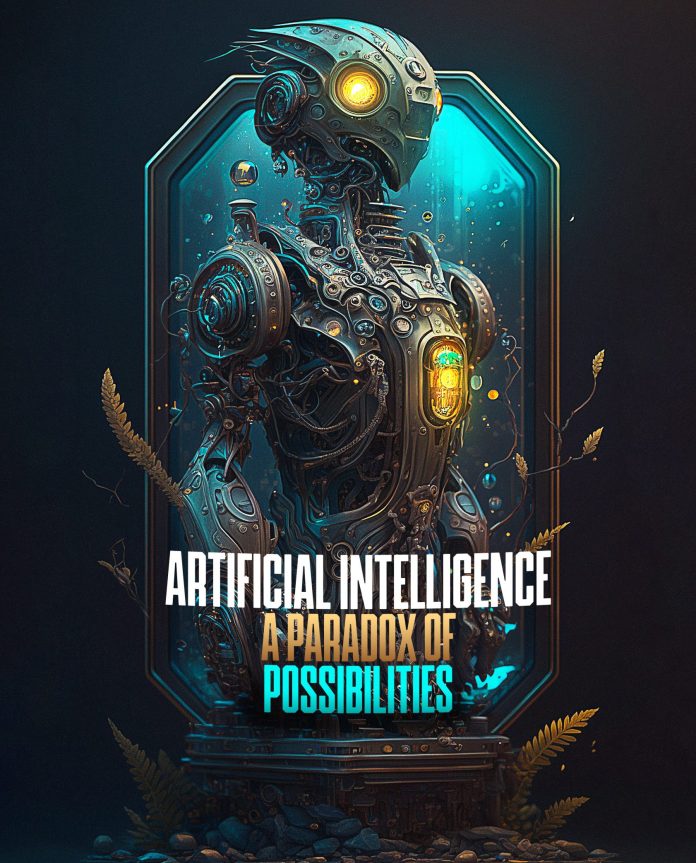Star companies such as Google, Amazon, Microsoft, and Apple have been some of the biggest recruiters of code nerds, software specialists, and data analysts as the sector continues to become a sought-after field for IT professionals.
While Pakistan has been relatively slow in adopting technology, the pandemic saw an overnight shift to e-commerce as Pakistanis were forced to jump on the online bandwagon. Let’s explore some of the early adopters of technology in Pakistan that are determined to reimagine the future with a different purpose and transform dreams into reality.

Aamir Yaqub, Director Engineering, 10Pearls
Hailed as a human-centred business, 10Pearls began its operations in 2004 by Imran and Zeeshan Aftab. However, the two-person set-up soon took off as a successful venture, engaging 1500 employees, with a global presence in the United States, the United Kingdom, Costa Rica, Colombia, Pakistan, and Peru.
As a ‘double bottom line’ company, the company aims to deliver excellent yet affordable services, leave a positive impact on the world, give back to the country, and, on a rather granular level, invest in its employees. Starting with one QA and one developer, the understanding and dynamics of how well-paying jobs could change entire communities, particularly in emerging economies, was reflected in the enriched lives of families, creating a cascading effect throughout society.
Synergyzer reached out to Aamir Yaqub, Director Engineering, 10Pearls, to delve deeper into the science and business of data, artificial intelligence, and its role in the advertising and marketing world.
Yaqub mentioned that as the business is so widespread across various continents and spans different time zones, many employees are working remotely, while the management and sales staff works from the office. Although 10Pearls have many global clients, most of the developing team is based in major cities of Pakistan – Karachi, Lahore, and Islamabad.
Yaqub is majorly responsible for various projects in the engineering domain. His support in facing glitches and challenges is critical in smooth and seamless operations. His fort is to understand the clients’ problems, provide them with actionable, optimal solutions, and help the team to maximize their development efficiency. 10Pearls is constantly introducing new processes, improving the existing ones, and exploring new tools, technology and frameworks that eventually drives the team forward.
As 10Pearls is heavily dependent on and driven by technology, one wonders how this came about as early as 2004, when nothing of this sort had begun to take root in Pakistan. Yaqub explains, “We started small with website designing, mobile applications, logos, etc. During the boom of mobile applications, Nokia initiated a competition which we won.”
Extrapolating the same, he said, “On a daily basis, we engage in researching new tools, keeping an eye on emerging technologies to build capabilities within the team and fulfil the clients’ needs. This also helps us to stay one step ahead of the market trends. This has allowed us to achieve phenomenal growth.”
To stay ahead of the game, the organization is proud to have a 10P Lab, a research and development laboratory, or an incubation centre, where the team experiments with data science, machine learning, the Internet of Things (IoT), Blockchain, and Metaverse. The Directors implement, test, and brainstorm new ideas to solve the problems faced by the market.
Talking about the improvements in software development processes, Yaqub said, “AI machine learning has helped with automated testing, reducing the cost and manual work. Another important enabler is predictive analytics. Machine learning algorithms can analyze the data of software development, including bugs, and codes, and make future predictions by identifying the patterns. This helps developers to optimize their jobs on a daily basis. AI has solved the problems for the customers and brought efficiency in-house too. Natural Language Process (NLP) has the ability to analyze the code and generate documentation directly. We don’t require an additional technical writer/resource anymore.”
What it all boils down to for a layman is that it is all customer-centric, especially in the field of digital marketing, consumer behaviour and sentiment analysis. “If you want to serve 100000 users per day, then you need a larger workforce, but it can easily be replaced by virtual assistants or chatbots by understanding queries and responding promptly. It identifies the patterns, analyzes the inputs in the human language, and gives more personalized responses. NLP plays a crucial role in digital marketing by looking at product reviews and analyzing customer feedback to help product marketing strategies. Feedbacks give us great insights – whether the product is improved, needs further improvement, or missing any feature. It will generalize the feedback so we can tailor our marketing messages according to the target audience.”
Another industry-disrupting trend is machine translation, prompted Yaqub. “If I am in Karachi, and I want to speak to my client in Spain, language will no more be a communication barrier because AI will translate words for me.” What about all the multilingual, exotic, high-paying, globe-trotting translators? This brings us to another game-changer – text-to-speech and speech-to-text recognition, as though a robot is speaking from a mobile phone.
While all of it sounds fast and fancy, it is not all easy and breezy. Like everything else, AI is surrounded by ethical implications with critical stakeholders in terms of data security and privacy. Yaqub comments, “Biasness and discrimination are immensely important. For instance, ChatGPT is trained by using internet data and social media conversations. If you are looking to hire a person, and the data fed into the system has used the male gender, it will recommend clients based on that gender. The same is the case with diversity, religion, or race. Eventually, AI will build on data fed by humans. If the data is biased, the results will be reflective of that bias.”
Privacy and security are other important issues that riddles AI. “This rings especially true for the finance and healthcare industries, where a lot of personal data and identification is required.” It makes it all the more important to secure data from outsiders, and unauthorized access, which may lead to data breaches and security threats.
To deal with cyber threats, 10Pearls offers security training and awareness. “We make our developers aware of secure coding practices, with secure libraries and encryptions for user authentication and authorization. We have a 1-week boot camp before hiring to familiarize the recruit with security protocols, processes, development, client privacy, etc.”
There are further guidelines developed by the Institute of Electrical and Electronics Engineers (IEEE) and the Association for Computing Machinery (ACM) used by 10Pearls when building an AI-responsible application – which is free of bias. “We implement reinforcement learning. When you receive a response from an AI pod, the response to this helps to build a reward system where positively-impacting systems are rewarded and vice versa. In the end, there is a cumulative score built on the model. Using these, we can mitigate the biasness. Privacy and security issue is resolved by data encryption, access controls, etc. We have explainable AI that communicates how the decision has been made by AI, using the data.”

Muhammad Jawad Raza, Head of Data Analytics, Big Data, and AI, Meezan Bank Limited
Jawad Raza has been a finance and investment professional throughout most of his career. With extensive experience in hedge funds, pension funds, financial institutions and investment, risk assessment, valuation and financial modelling, and business strategy, Raza lands in the world of data, AI, and analytics. How so, and why is artificial intelligence important in the banking sector? Let’s find out.
“I was one of the few persons to have the diverse experience of both finance and data, both of which play a key role in the banking sector. It is important to have the understanding of the numbers along with data to be able to drive business in the financial sector.” He was responsible for setting up an incubation centre to train the relevant stakeholders and implement the processes conducive to efficient banking methods.
Talking about the challenges, he explained, “There were early adopters to whom we distributed the latest devices. They experimented with them and proved to be quick learners. Then there are the followers who seem rather hesitant to adopt technology. If the followers are on board, they act as ambassadors and can pull others into the circuit. Then there are the nay-sayers who reject technology as a growing phenomenon. One doesn’t want to invest efforts in them, but they possess the potential to dismantle a project really quickly. It is my job to dampen their noise and uptake their challenge.
The success factor walks in when (because I am a Chartered Accountant and an Investment Banker) the bankers only have a hard time dealing with a fintech person leading the IT. A unique chance that Meezan initiated. So, before the team feels disrupted and disgruntled, they have witnessed me disrupting myself through and through. At some level, it was encouraging for the team. I think it is about time we think outside the normal domains. Because if you are not growing yourself, your movement becomes extremely stagnant.”
For the human side, Raza had to initiate rigorous training for sensitization and transition. For the business and technical side, he included many orientations, and steering committee meetings, with one-on-one hard struggles. The end-to-end project took two years – a year for project management and a year for training.
However, a project is not successful unless one delivers value out of it. An IT project begins value generation when the system goes live. The relevant people are onboarded to produce data assets, use and design elements with the help of AI and ML. “I would like to add that AI is not here to replace humans. AI does what human does. But what humans do, machines have never done it before. More importantly, humans do what humans have never done it before. The challenge comes in when people aren’t willing to upskill themselves. And as senior management, we are here to help with that,” commented Raza.
This goes on to show that banks and bankers will have to constantly stay ahead of their game to sustain themselves. Because without the adoption of AI, banks may be driven out of business, as critical as data is. “It has already started to change the future of the banking and fintech. Banks will have to become more proactive. Rather than pull, banks will have to push strategy. Earlier, customers visited the banks for services they needed. Now, the banks will have to reach out to the customers and pitch their offerings to those they think they might not have catered to. That’s where the data helps, tapping into markets we don’t know existed. In this way, we can predict customer needs rather than them approaching us with a need.
This encourages cross-selling and up-selling your services. Secondly, AI helps to get through a lot of manual work and make faster decisions. Essentially, it all boils down to better customer service and a quicker decision than before. Thirdly, data protection becomes a huge responsibility.
It will make our cyber and information security stronger, and the digital platforms, where the customer is actually present, much stronger.” Having said that, although AI is as useful as it can be, but it can also get into the hands of the outsiders who may want to break our systems.” Raza underlined, “In terms of fraud detection, I know banks who have used ML and big data for it. AI specifically isn’t needed for fraud detection, not yet, at least. But we are in talks and working with telcos to curb it. But algorithms don’t come in the AI bucket. It is a determinist system called decision support. In decision support, humans build the rules for the system. This prevents various transactions that are impossible to happen. With AI, algos embeds the rules because humans feed data into it.”
How can artificial intelligence be used to personalize the services, especially when it is trained on historical data? “Let me walk you through our practical application – next best offer and churn. With a large amount of data with millions of fields, the data will analyze that there is a customer X, with a 90% probability, who may want to opt for Car Ijara – our car financing offering. It is an existing bank customer (ETB), as opposed to a new-to-bank customer (NTB). But before approaching that person, we go through Credit Information Bureau (eCIB) and run credit checks to white-list that person. Then, we approach the customer, stating he doesn’t get a Car Ijara. Rather, it is already approved by the bank. If the customer agrees, they get XYZ car.
This reduces the whole process of customers coming to us and struggling through the application process, which takes months. So, the turnaround time is reduced by vast amounts, and encourages straight through processing for people who qualify for our services.” Therefore, it is important to keep those white lists on the databases to skip those hoops. The customer here is the churner who hasn’t visited the bank for a time, and based on the behavioural model, we approach him/her proactively. Instead of the customer leaving the bank quietly, we have a customer feel that the bank genuinely cares. That’s how AI is critical.”
The technicality of AI and analytics requires data literacy and relevant experience, a rarity to come by in the Pakistani education system for a student to transition into a professional. Raza comments, “I have been struggling to hire people recently in the field of data analytics. The fact of the matter is there is no blue book for studying it. We will solve every problem. So universities must ensure that students are brilliant at a conceptual level (data warehousing, data lake, security, encryption, etc.).
There is a huge gap between academia and industry. Universities teach them products like machine learning (ML), whereas they need to study the process. This leaves one in black box operations. In banking, you can’t work that way, especially when one is dealing with compliance, audit, and the State Bank. One has to validate models to these stakeholders. An algorithm cannot take a decision in a black box.”
He also emphasized the importance of problem-solving skills. “Successful professionals know how to cut through problems,” Raza stressed. During the course of education, students do not get an opportunity to mingle with strategic thinkers and industry experts. The latter should be developing the curriculum, but because the corporates never get to provide feedback, there is a lag. “So, when fresh grads enter the professional world, there is a huge gap between what is taught and what should’ve been taught.” Sad, but true.

Hussnain Ahmed, Chief Data Officer, Rayn
I am placed in Rayn Consulting, and Rayn Group takes pride in a team with a vision to provide a platform for collaboration, innovation and growth. With a global perspective and experience, the company drives the digital future with a solution to every problem. The organization brings to the table the ability to strategize, the capacity to implement and the dedication and commitment required for seamless execution.
Rayn Group entails four verticals. Rayn’s operations require extensive research and design work. Rayn Studios is responsible for user experience and user interface designers that help to understand user requirements. Rayn Consulting, where Hussnain is placed, helps clients with their digitization journeys. From app development to data collection to reporting needs, they do it all. There are app developers to develop web and mobile applications; cloud engineers to deploy these apps and scale them; data engineers to work with the data; and data scientists who are responsible for statistical analysis. Rayn Ventures is an incubation centre for new tech startups in Pakistan. And Rayn Capital invests in already existing tech startups in Pakistan.
The began only three years ago by Tania Aidrus, who was leading Digital Pakistan in 2019. She reached out to many tech experts outside of Pakistan who was planning to return to Pakistan for one reason or another – Wapistanis.
Talking about the challenges of adopting AI, Ahmed elaborates, “We have a lot of data in hard copies. We need data engineering – to gather data, and digitalize it, before we begin to implement ML or AI.”
Marketing, in an extremely fundamental way, is pretty much changing the whole industry. Ahmed believes that communications and advertising have been early adopters of data utilization in Pakistan “as the country is going through a green revolution” in terms of digital products. As early as the 2000s, people had begun to go online; case in point, Amazon bookstores. “Connectivity to data is no longer a challenge,” he asserted.
For instance, speaking of airlines, or healthcare, their data resides somewhere in stores, and quite inaccessible. If an organization has a digital product, one has already moved to the cloud. “Then the access is extremely easy as a natural evolution,” said Ahmed.
Now, Pakistanis are talking about it, in conversations, in board rooms, and on social media. They are buying things online. Consumer behaviour and purchasing habits have altered drastically, without any interaction with the sellers, and still being able to voice out their needs.
On the other end of the spectrum, it raises data privacy concerns. “All the data we have is personally identifiable. So, analytics and ML may not necessarily need that. It majorly works on aggregates. When we work with data, we do not ask for phone numbers or NICs. We work on higher-level trends. Many a time, we have to orchestrate and engineer quite a bit to mask that personal data, ensuring that we don’t exploit anyone. Having said that, when it comes to marketing, one needs the emails and phone numbers to process the request. In our industry, while analyzing the data, it is not a good practice to utilize personally identifiable data. Honestly, it is not very useful for our models either.”
To explain the aggregates, Ahmed relays an example, “If you are looking to run a water conservation campaign, it cannot be sent everywhere. We need the right audience, where maximum water wastage is taking place, and tap those areas accordingly. We group them based on their consumption and then address them. Again, we do not need the data on a granular level.”
Talking about the skills marketers may need to leverage AI and harness the technology effectively, Ahmed says, “Some universities do cater to data science students, and we are generating sufficient resources, but it is important for the students to know how to apply these skills for which they need expert guidance from industry leaders. Our students are excellent in academics but must be exposed to a business setting to generate a social value.” It was pleasantly surprising to know that globally, there is a huge shortage of AI talent and skills, as opposed to Pakistan. But with limited resources available, the West is one step ahead when it comes down to generating business value. Like I said earlier, this is because we don’t possess enough digital data to feed to ML models, while the Western economies have digitalized nearly everything.”
In the next three to four years, we will have generated enough data that we haven’t in the last 30 to 40 years. This blast of data and accessibility to it is driving AI innovation. “This will help Pakistan once we start digitalizing data and implementing the models. Pakistan is also fixated on regressing manual work, whereas business leaders should encourage automation and improve efficiencies.”
While automation and mechanization will reduce human effort. They will also make many jobs redundant and increase job insecurity in a nation that is rattled by economic disaster and social descent. Ahmed opines, “I would like a social scientist to give an expert opinion, but I truly believe, and I have witnessed it in the West as well, that AI will reduce the redundant tasks, but it will also give rise to new business models which will increase employment, such as the advent of social media created new kinds of jobs.” Secondly, people will get to focus on key messages and strategic tasks; those will always stay with the humans. If, as a human species, we have to think about interplanetary travel and the likes, we have to rid ourselves of the tedious tasks.”
Customer engagement is another domain that will utilize AI extensively. The main job of AI-powered tools will be to understand user behaviour and convey messages to the right audience. Needless to say, it has improved, but it has also created friction. Ahmed explains, “Think of a chatbot in a healthcare facility – people will get frustrated. Even in the banking sector, I was using a service which led me to an AI pod, and I got frustrated. Hopefully, work processes and workflows will improve in the right direction with the passage of time. And I repeat, AI is not here to replace us; it will augment us.”
Speaking of the healthcare industry, Ahmed said that data could upload in vast amounts, such as lab reports and x-ray reports to figure out the criticality of the patient. AI can make many reports of urologists and radiologists. “If a doctor was previously catering to 10 patients a day, now he/she can cater to 40, perhaps.”
Working around such technology may pose a challenge for a certain section of people in Pakistan. Including the uneducated class visiting the hospitals may not know how to wrap their heads around it. Ahmed comments, “There are challenges at the moment, but once AI becomes mainstream, we will experience its benefits. Every change has its glitches and will only resolve as and when we face them.”

